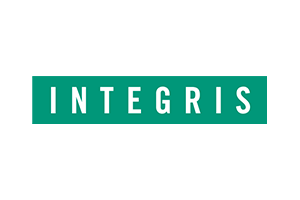As the largest health system in Oklahoma, INTEGRIS Health has an obligation to set the standard for safety and quality, particularly during the COVID-19 pandemic.
INTEGRIS continues to support a policy of universal masking across the system. This means all caregivers, providers, patients and patient representatives must wear a face mask while on INTEGRIS property.
As the number of coronavirus cases continues to grow at an alarming rate across the state, using a mask, along with other preventive measures such as social distancing and frequent handwashing, has been scientifically proven to slow community spread. That’s why INTEGRIS has strongly urged all caregivers to make it their personal responsibility to wear a mask when out in public as well as in the hospital, and why the health system is encouraging all fellow citizens across the state to join in and wear a mask for their own sakes and the sake of others.
Addressing the Confusion
Both the Centers for Disease Control and Prevention and the World Health Organization now recommend that everyone over the age of two wear a mask while in public settings.
Earlier in the pandemic both organizations recommended the opposite, which has caused confusion among the public about the effectiveness of masks. But why did these recommendations evolve? Evolution is a basic tenet of scientific inquiry. Scientists let their opinions develop and transform as better information becomes available.
In the beginning, there was legitimate concern in the health care community that the limited supply of surgical masks and N95 respirators needed to be saved for health care workers. Also earlier in the pandemic, scientists understood little about the scope of the coronavirus spread, so the original CDC guidance was partly based on what was thought to be low disease occurrence.
But the CDC changed its guidance in favor of masks as more people became infected and scientists gained a clearer understanding that both pre-symptomatic and asymptomatic transmissions were common. Viral load peaks in the days before symptoms begin and speaking is enough to expel virus-carrying droplets.
The Science of Masks
As more has been learned about the spread of COVID-19, there has been a growing body of evidence showing just how effective masks can be. Health experts also say the science is clear that the more people wearing masks, the better. The latest forecast from the Institute of Health Metrics and Evaluation suggests that 33,000 deaths could be avoided by October 1 if 95 percent of people wore masks in public. For a fascinating look at why masks work, watch this video from PBS.
To summarize in a nutshell, here are three quick reasons to wear a mask:
To protect your loved ones: When you wear a mask you protect others by preventing the spread of your own germs.
To protect the community: More people wearing masks results in better protection for everyone.
Your COVID-19 status is unknown: You may have COVID-19 or have been exposed to the virus without showing symptoms.
Local resources are already approaching their limits and if nothing is done to mitigate the spread of this disease infected individuals will fill our hospitals, overwhelm our ICUs and help will not be available to those who need it.













